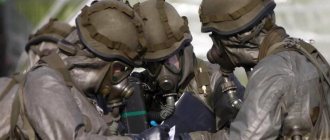According to procedural law, failure to appear in response to a summons to an investigator without good reason can result in very unpleasant consequences for the participants in a criminal case. But only if this document was handed over signature to the summoned person or one of his relatives who took on such an obligation. Otherwise there shouldn't be any problems.
Receipt
According to Art. 188 of the Code of Criminal Procedure, a witness to an atrocity or a victim is summoned for a procedural conversation with the investigator only by a summons. In this case, the person must be given this document in person and against signature. Otherwise, in the future the citizen may simply not appear for questioning, justifying this fact by the fact that he was not properly notified. In this case, he will be absolutely right. In addition, if the person to whom the summons must be served is temporarily absent, then it can be handed over to one of the adult members of his family against signature.
This document is also presented through the administration of the place of work or study. In the latter case, this applies only to those individuals who are under 16 years of age. In addition, these minors are summoned for a procedural conversation through their legal representatives. If the person was properly notified of the invitation to interrogation, then failure to appear in response to the summons to the investigator can have very unpleasant consequences, including arrest and the imposition of a monetary penalty.
Sample
When calling a citizen to the investigator, it is necessary to correctly draw up the procedural document. It should indicate in what capacity this person is being called and for what purpose. All unpleasant consequences that await a person should also be listed if his failure to appear on a summons to the investigator does not have valid reasons. As a rule, a citizen must confirm his absence with appropriate papers. This document is completed as follows:
- Summons for questioning 00.00.00, city ______________ In accordance with Art. 188 of the Code of Criminal Procedure, you must appear on 00.00.00 at the police department of the city of ________ as a witness in case No.___ to testify. You must have a passport or other identification document with you. In case of failure to appear without good reason, procedural coercion measures provided for in Art. 111 Code of Criminal Procedure. Investigator of the Department of Internal Affairs, Captain of Justice __________________ (signature)
From this example it is clear that the law enforcement officer indicates in the document all the consequences awaiting a person who was duly notified of a summons for questioning, but did not appear for it. Therefore, failure to appear under a summons to the investigator must be officially confirmed. For example, sick leave.
How to call a witness to court in a criminal case
Usually, participants in a criminal case do not need to take measures to ensure that witnesses appear in court. At the end of the indictment for each case there is a list of persons who must be summoned to court, it looks like this:
| LIST of persons to be summoned to the court hearing: 1. Accused: R.O Parusov, registered at the address: Tyumen, st. Krasnaya, 3; Currently, he has been chosen as a preventive measure in the form of detention and is being held in pre-trial detention center-2 2.Defender: lawyer of the Tyumen branch of the Bar Association K.U. Mironov. 3. Victim: Lukina S.L., registered and lives at the address: Tyumen, st. Polomenskogo, 18, apt. 10 Prosecution witnesses: 4. Boldyrev K.D., registered and resides at the address: Tyumen, st. Pisareva, 10 5. Rybakov A.P., registered and resides at the address: Tyumen, st. Dybenko, 12, apt. 6 Defense witnesses: 6. Permyakov S.S., registered and resides at the address: Tyumen, st. Tarasova, 239, apt. 1 Investigation Department Investigator crimes against property P.R. Malkov |
As can be seen from the above list, it contains both prosecution witnesses and defense witnesses (the latter are usually fewer in number). The responsibility to ensure attendance at the hearing lies with the court staff, whose employees send out subpoenas. At the same time, both the victim and the defense have the right to call additional witnesses, they may be:
- persons who were interrogated by the investigator, but he did not consider it necessary to include them in the list;
- persons whose interrogation was refused during the investigation - the parties have the right to declare them again, already at the stage of the court hearing;
- those people whom no one knew about before the trial (for example, a lawyer conducted his own investigation and identified an eyewitness).
Thus, there is no need to file a separate reasoned petition for the interrogation of those included in the list of indictments or indictments.
If a party has come to the conclusion that it is necessary to interrogate other people, a request for this can be made either orally or in writing. Regardless of the form of the application, calling an additional witness must be motivated by:
To the Leninsky District Court of Tyumen, Judge G.P. Stryukina. Lukina S.L., the victim in the case against Parusov R.O., accused of committing a crime under paragraph “a” of Part 3 of Art. 158 of the Criminal Code of the Russian Federation (theft with illegal entry into a home)
Petition (SAMPLE) for questioning a witness in court
Your Honor! I ask you to summon and interrogate as a witness for the prosecution citizen E.S. Polyakova, living at the address: Tyumen, st. Moskovskaya, 34. Polyakova E.S. is a postman, she brought me a pension in the amount of 8,000 rubles on the eve of the theft. Taking into account the position of Parusov R.O. that he did not steal money, I consider this person an important witness who can confirm the presence of money in my apartment at the time of the theft.
Based on the above, guided by clause 5, part 2, art. 42 Code of Criminal Procedure of the Russian Federation,
ASK:
Summon and interrogate E.S. Polyakova at the court hearing. Send her a summons to the address I indicated.
Lukina S.L., date, signature
Before filing such a petition, we recommend that the court consider the following:
- it is usually submitted after the interrogation of all persons who were named in the list attached to the indictment. At the same time, if it is more expedient to bring a witness earlier than “scheduled,” the law allows this;
- we do not recommend making copies of the petition for other participants (there is no need for the opposite party to provide access to the personal data of the summoned person), especially since the Code of Criminal Procedure of the Russian Federation does not contain a corresponding requirement for this;
- Once again, make sure that the data specified in the application is correct: full name, residential address, you can also indicate a telephone number for direct contact with a potential witness;
- if you need to summon a minor for questioning, this must be done through his legal representative, that is, parents, guardians (for more information about questioning minors, read our article);
- If you can ensure the attendance of a witness yourself, you are allowed to bring him with you to the court hearing. In accordance with criminal procedure legislation, the court does not have the right to refuse to interrogate persons who have already appeared at the start of the proceedings. Thus, you will take all measures to ensure that your application is unconditionally granted. In this case, you can do without writing and submit your petition orally.
Question: What to do if the court refuses to question a witness?
Answer : Act according to the circumstances: you can present other evidence (documents, video recordings, testimonies of other persons), and then once again submit a similar request to interrogate the same person. At the same time, draw the court’s attention to the fact that the evidence presented must be supported by the testimony of the person whose appearance you insist on. If the evidence is exhausted and you can no longer present anything to the court, all that remains is to appeal the refusal to satisfy the petition in an appeal against the verdict (the Code of Criminal Procedure of the Russian Federation does not provide for a separate appeal procedure). The complaint can also raise the issue of summoning persons - if the appellate court considers the petition to be motivated, an interrogation can be conducted when reviewing the decision.
We remind the reader that in criminal cases considered under the rules of special proceedings, witnesses are not called or questioned (read more about the special procedure for considering criminal cases here).
Drive unit
If a person is summoned to appear before an investigator, the citizen must appear at the appointed time at the authority specified in the document. Otherwise, the person may be forcibly taken there based on the order of a law enforcement officer.
In addition, a citizen who is summoned by summons must notify the investigator of his absence if there is a good reason for this, and then confirm his words with a written document. In this case, the police investigator will not bring the person into custody, but will simply schedule another time for a procedural conversation. It should also be noted here that this measure of procedural coercion can be applied to suspects, accused and victims.
The drive does not apply to persons under 14 years of age, women expecting a child, and sick people who need to stay at home for health reasons. In addition, this measure of procedural coercion is not carried out at night. In the event that a citizen is subjected to arrest, this must be justified in a decision issued by the police investigator.
Commitment
Responsibility for failure to appear in response to a summons to the investigator will only occur if the person was properly notified of the upcoming procedural conversation. Even if a person received this document in his hands, but did not put his signature on another copy, which is returned to law enforcement agencies, this will also mean that the citizen knew about the upcoming interrogation. In this case, the investigator may impose an obligation to appear on such a person. It will consist in the fact that a citizen must come to law enforcement agencies upon the first call from an employee. Otherwise, preventive measures may be applied to him.
Moreover, this obligation applies not only to suspects and accused persons, but also to witnesses and victims. By signing such a document, a citizen assumes certain functions, which consist, first of all, of reporting a change of residence to the investigator and appearing upon his first call. Of course, this is already an extreme measure of procedural coercion. It is used only if the law enforcement officer is not sure that the person will independently appear for questioning. Therefore, having received a document such as a subpoena, the witness must arrive at the specified time to give evidence to the body indicated in it.
Procedure for questioning a witness in court
The first to begin interrogation is the one on whose side the witness is. So, if a witness for the prosecution appears (you must be guided by the list of persons in the indictment - it indicates the status of each), the state prosecutor interrogates him first.
If there are several representatives of the party (for example, the defendant has several lawyers), the issue of priority among them is resolved by them independently. The interrogation of a person who is additionally summoned (that is, based on a petition) begins with the person who filed such a petition.
The procedure for questioning in court is as follows:
- The court announces the full name of the person who appeared for questioning, as well as “whose” this witness is: the prosecution or the defense.
- The citizen is removed from the courtroom before the start of his interrogation. He should not be present when other persons (accused, victims) testify, as well as when resolving procedural issues (extending the period of detention, resolving motions to exclude evidence, etc.). The witness is not allowed to talk with other participants in the meeting, including relatives, loved ones and other witnesses present.
- The judge invites the summons into the courtroom, finds out whether he has or does not have family ties with the defendant, the victim, and explains the right not to testify against himself and his relatives. The obligation to testify is brought to the attention of the public, responsibility under Art. 307, 308 of the Criminal Code of the Russian Federation for giving false testimony and refusal to testify, the witness signs the so-called “subscription”, thereby confirming that he understands these norms of the criminal law. A citizen is provided with a translator if he does not speak (or speaks little) Russian.
- Usually the interrogation begins with the questions: “What do you know about the case? What can you tell us about what happened? What have you seen regarding the crime that is being prosecuted?” This gives the witness the opportunity to freely state whatever he considers necessary.
- The party that invited the witness asks clarifying questions. It is unacceptable to ask leading questions (that is, those that suggest the “right” answer), as well as questions that are not relevant. The court, on its own initiative or at the request of a party, can “remove”, that is, cancel - the witness’s answer to them is not taken into account. Example No. 1 . During the interrogation of witness Syzranov E.N. the state prosecutor asked him a question: On February 20, 2018, did you see the defendant Karasev N.O., dressed in a red jacket, walking along the street. A villager with a Sony TV in his hands? The defense asked to withdraw this question, since it is leading: the question already contains information on the circumstances, how the defendant Karasev was dressed, what he was carrying in his hands, the brand of the TV, etc. The court agreed with the defense’s opinion and “removed” the question; the state prosecutor was asked to reformulate it.
- After the questions of the party that invited the person to court, the other party asks questions. The court has the right to interrogate at any time.
- If at the end of the interrogation procedure anyone has additional questions, they can be asked with the permission of the presiding officer. Here the order is no longer important.
During the court hearing, it is permissible to ask the witness about the documents that are present in the case. Then, with the permission of the judge, the witness may be shown specific evidence from the materials of the criminal case (for example, an invoice, an identification protocol, etc.), on which he will testify. In the protocol of the court session, this procedure is recorded in full, indicating the actions, for example: “the witness is invited to familiarize himself with the protocol for the seizure of shoes dated 03/01/2018 on sheets of case No. 123-126 in volume No. 2, after which he was asked the following question...”.
The witness has the right to use his own documents or records, but only with the permission of the court - for example, in criminal cases of an economic nature with many calculations and complex calculations. The parties have the right to request familiarization with such documents and their inclusion in the case materials.
At the end of the interrogation, the witness may exercise his right to reimbursement of expenses associated with appearing in court by submitting a written petition to the court:
To the Leninsky District Court of Tyumen, Judge G.P. Stryukina. Polyakova E.S., a witness in a criminal case against Parusov R.O., accused of committing a crime under paragraph “a” of Part 3 of Art. 158 CC
Petition for reimbursement of expenses associated with appearing in court for questioning
I ask you to issue an order to pay me the expenses incurred related to the need to appear in court to testify as a witness in a criminal case against Parusov R.O.
In connection with the summons (an agenda indicating the date and time of the meeting is attached), I had to return air tickets to Sochi (a family vacation was planned) and buy new ones for another date, while the airline withheld a commission of 5,400 rubles, and the new tickets turned out to be more expensive for 1200 rubles.
Thus, I incurred expenses totaling 6,600 rubles.
Based on the above, guided by clause 5, part 4, art. 56 of the Code of Criminal Procedure of the Russian Federation (the right of a witness to file petitions and bring complaints),
ASK:
Compensate me, Polyakova E.S., residing at the address: Tyumen, st. Moskovskaya, 34, expenses incurred in the amount of 6600 rubles, transfer to my account 000000222222, opened in branch 2323/00 of PJSC Sberbank of the Russian Federation, BIC0000000.
Enclosure: summons to appear on 03/01/2018, two air tickets, receipt of payment of the commission.
Polyakova E.S., number, signature
Collection
Another no less sad consequence of failure to appear on a subpoena is that a small fine may be imposed on an unscrupulous witness. Monetary recovery in this case is provided for in Art. 111 Code of Criminal Procedure. It is a measure of procedural coercion. That is why a police summons is considered a serious document, the receipt of which must also be approached responsibly.
Presentation
According to Art. 188 of the Code of Criminal Procedure, the summons must be handed over to the person personally against signature. If the citizen is absent, it can be given to another adult member of his family. If a person did not sign for a summons, but received one, he is considered aware of the summons to law enforcement agencies. Failure to appear before the investigator in this case will have unpleasant consequences.
If the summoned witness has not reached the age of sixteen, then the summons must be served on him through his parents or the administration of his studies or work. At the same time, the latter assume obligations to transfer it to the addressee. If a citizen does not sign the summons, then a corresponding entry is made about this on the document that is returned back to law enforcement agencies.
Questioning a witness in court in a civil case
The interrogation procedure in civil cases largely coincides with criminal proceedings, but there are still some differences:
- Only those persons declared by the parties are summoned to the court hearing to resolve disputes: there is no list that is drawn up before the court hearing and is mandatory for the judge.
- In civil proceedings, there is no obligation for the judge to question a witness who has appeared. If the court considers the request for questioning to be unmotivated, it may refuse to satisfy it, even if an eyewitness to the controversial events is already outside the courtroom.
- In civil cases, written testimony of witnesses cannot be accepted as evidence, unlike in criminal proceedings, where interrogation protocols given at the pre-trial stage are widely used. At the same time, in some cases, the court, when considering a civil case, can do without repeated interrogation and read out the testimony of the person given earlier in the same court hearing. Example No. 2 . When considering a claim for debt collection, an employee of the Management Company was called, who brought to the attention of the participants a detailed calculation of the debt for housing and communal services. The case was postponed due to the busyness of the defendant's representative. The CC officer was unable to appear at the next court hearing. Since the parties did not have any new questions for him, it was decided to read out the testimony he gave at the previous meeting.
- In civil proceedings, a form of interrogation by writ is permissible - the procedure will be carried out by the judge of the city where the person lives, after which the original protocol will be sent to the court where the case is being considered on the merits. In criminal proceedings, this form of providing evidence is not provided.
- In civil proceedings, interrogation of “classified” witnesses is not practiced; video conferencing is extremely rarely used. In addition, a decree on summons is rarely issued: in the consideration of disputes, the principle of adversarialism is more pronounced than in criminal proceedings; Ensuring attendance is almost entirely the responsibility of the parties, and the court's participation in the delivery of witnesses is minimal.
Consequences
A citizen who is summoned to a procedural person under a subpoena must appear at the time specified therein and at the specified address to give evidence to the investigator. Otherwise, the measures provided for in Art. 111 Code of Criminal Procedure. If an individual, due to illness, business trip or other valid reason, cannot arrive at a law enforcement officer within the specified period, then he must report this, and then confirm his words with official documents. As a rule, the investigator always meets the person halfway. He will reschedule the interrogation for another time if there are good reasons or will conduct it in the house of the witness or victim.
You have been called: how to behave
Let's say you are a witness in a criminal case. Here are some practical tips on how to behave during interrogation in court:
- First, don't ignore the challenge. It will not be very pleasant when there is a knock on your door at 7 am - bailiffs try to bypass the addresses indicated in the arrest order as early as possible. It is your civic duty to appear and testify.
- It happens that the proceedings are postponed without starting (for example, representatives of one of the parties fall ill). Then you need to find out from the assistant judge the date of the next court hearing and receive a summons.
- Usually the person being called knows in advance under what circumstances they want to interrogate him. Try to remember well the events related to the crime in order to answer the questions posed as accurately as possible. There is no need to invent or assume if you do not remember this or that detail. It’s better to answer honestly: “I don’t remember.”
- Give your testimony confidently and clearly, provide only information that is relevant to the case. Do not focus on biographical information that is not related to the events of the crime.
- Remember that the witness does not have the right to ask questions to the participants in the process and the court. At the same time, he has the right to submit requests of various nature related to the procedural order (for example, a request for a break due to poor health, a statement about pressure exerted on him by other persons, a request for payment of expenses, etc. ).
Meaning
A summons is a procedural document that is issued only to those persons whose testimony can help the investigation uncover the crime committed as quickly as possible, so this document must be taken very seriously. As a rule, the summons indicates in what capacity and at what address the citizen is summoned. A note is also made that in case of failure to appear at the specified time, the person may be subject to arrest.








